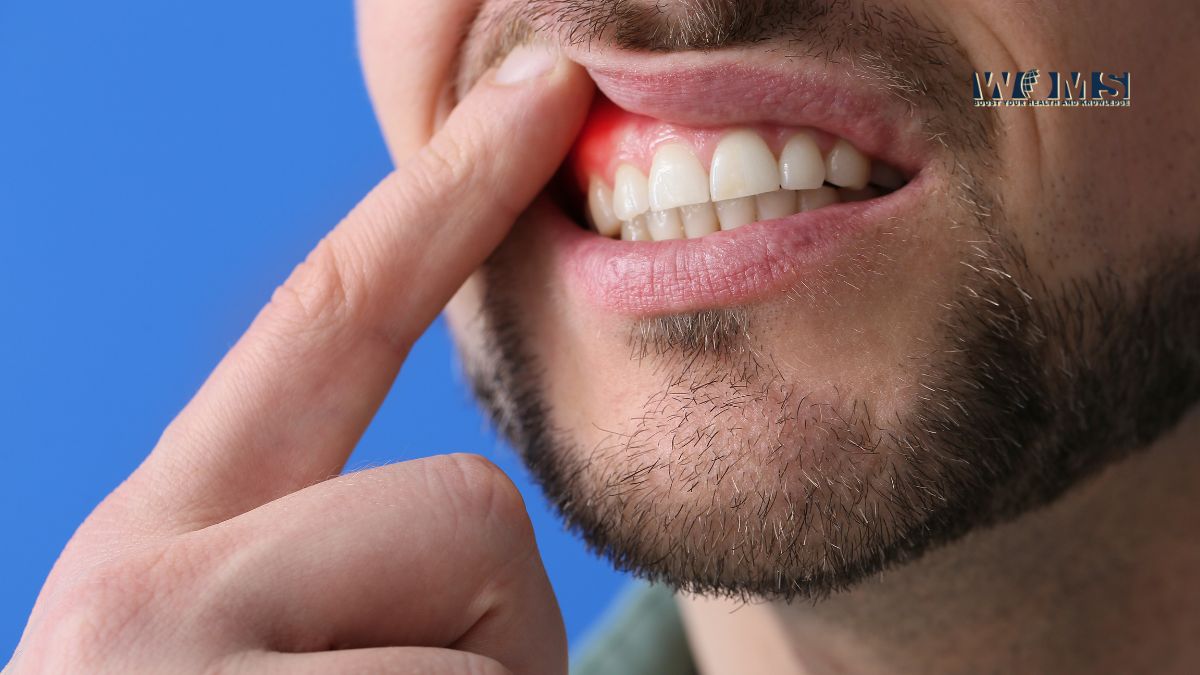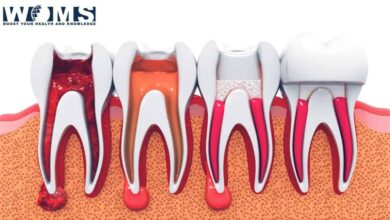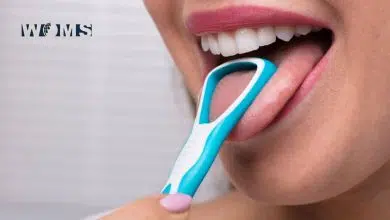Periodontal Disease (Gum Disease): Causes and Treatment Options

Gum disease, known as periodontal disease, is an oral health problem that can lead to serious issues if left untreated. Research shows that nearly 47 out of every 100 adults aged 30 and older experience some stage of this condition. In this article, we discuss the causes, stages, symptoms, prevention, and treatment of this condition.
Stages of Gum Disease
Gum disease develops in different stages, starting mild and becoming more serious if left untreated. These stages are important to understand in determining the most effective treatment options.
Gingivitis (Early Stage)
Gingivitis is the first stage of gum disease. It happens when plaque builds up around the teeth, causing gums to turn red, swell, or bleed during brushing. Gingivitis will not cause permanent damage, and it can be fixed with good oral care and proper dental cleaning.
Mild Periodontitis
If gingivitis is not treated on time, it may turn into mild periodontitis. Gums slowly pull away from the teeth, creating small pockets where bacteria can grow. Mild periodontitis can damage the supporting bone and weaken the gums.
Dentists sometimes prescribe mouth rinses, gels, tablets, or antibiotics from a reliable pharmaceutical production line to fight infection during this phase.
Moderate Periodontitis
The infection will begin to spread deeper into the gums and bone. The teeth may feel loose, and chewing can become uncomfortable. Professional treatment is very important to prevent further damage.
Advanced Periodontitis
This is the most severe stage, where the bone and gums are badly damaged, with bone loss being more than 60%. Teeth will loosen or fall out, and surgery may be needed. At this point, the damage is permanent. However, treatment can still help control the disease and protect the remaining teeth.
Symptoms of Gum Disease
Gum disease shows warning signs that should not be ignored, as early detection can save your teeth and gums.
Red and Swollen Gums
One of the first signs is redness and swelling. The gums of a healthy person are pink in color and firm, but when infected, they look puffy and feel tender.
Bleeding While Brushing or Flossing
Gums that bleed easily during brushing or any other oral care activity signal irritation. This is not normal and typically indicates that plaque or bacteria are causing inflammation.
Bad Breath (Halitosis)
Persistent bad breath is another common symptom. Bacteria in the mouth produce odors that brushing alone cannot remove.
Receding Gums
As the disease worsens, the gums begin to pull away from the teeth, a condition known as gingival recession. This can make teeth appear longer and may create small gaps where food can get stuck.
Loose or Shifting Teeth
In advanced stages, gum disease weakens the support around the teeth. When this happens, it can cause teeth to become loose, move, or even fall out without proper treatment.
Sensitive Teeth
Exposed roots from receding gums may lead to sensitivity. Hot, cold, or sweet foods may suddenly cause pain or discomfort.
Risks and Complications
If gum disease is not treated as early as possible, it will result in serious dental and health problems. These complications affect not only the mouth but also overall well-being.
Tooth Loss
Advanced gum disease destroys the bone and tissue that hold teeth in place. When there is no bone, the teeth will loosen and eventually fall out.
Bone Damage
The gum disease infection slowly eats away at the jawbone. Once the bone is lost, it cannot fully regenerate, which makes dental treatment more challenging.
Heart Problems
There is a strong link between gum disease and heart conditions. Bacteria from infected gums will enter the bloodstream, increasing the risk of potential heart disease and stroke.
Diabetes Complications
People with diabetes are more likely to have any form of gum disease. At the same time, untreated gum disease can make it harder to control your blood sugar levels.
Pregnancy Issues
Pregnant women with gum disease might have to face higher risks of early birth or babies with low birth weight.
Chronic Inflammation
Untreated gum infections keep the body in a state of stress, weakening the immune system. The ongoing inflammation can harm overall health over time.
Prevention Strategies
Preventing gum disease is much easier than going for treatment. With proper care, you will be able to keep your gums strong and avoid future problems.
Daily Oral Hygiene
Brushing your teeth twice a day with a good-quality toothpaste is the most effective way to prevent gum disease. Flossing once daily helps clean between teeth where a toothbrush cannot reach, removing plaque before it hardens. Just an additional thing, cleaning your tongue will also help with overall oral hygiene.
Healthy Diet Choices
Eating a balanced diet supports gum health. Fresh fruits, vegetables, and good food rich in vitamins C and D help strengthen gums. Limiting sugary drinks reduces the risk of plaque buildup and cavities. You can opt for sugar-free snacks if you get sweet cravings. This way, you will be able to balance your oral health and enjoy yummy treats.
Avoiding Smoking and Tobacco
Smoking is a huge risk for any dental issue, especially gum disease. Quitting smoking or avoiding tobacco altogether improves blood flow to the gums and allows them to heal faster. In contrast, eating healthy foods can strengthen your gums.
Dental Check-Ups
Visiting the dentist after a few months will allow for early detection of gum disease. Professional cleaning removes tartar that brushing cannot, lowering the risk of infection.
Managing Health Conditions
Conditions like diabetes will increase your risk of gum disease. Keeping blood sugar under control and following medical advice helps protect your gums.
Stress Management
High stress levels will weaken your immune system, and it will be much harder to fight infections. Relaxation techniques and proper rest can help reduce the risk of stress and prevent your gum disease from worsening.
Treatment of Gum Disease
Treating gum disease depends on how severe your condition is. Early stages can usually be managed at home, and with professional cleaning, while advanced cases may require more complex care.
Professional Cleaning
Dentists use specific tools to remove plaque and solid tartar that brushing cannot remove. This deep cleaning lowers swelling, bleeding, and infection, and helps protect the teeth.
Scaling and Root Planing
This advanced cleaning works below the gum line. Dentists smooth the root surfaces, reduce pockets where bacteria grow, improve gum attachment, and slow down further damage.
Surgical Treatments
In severe cases of gum disease, surgery can be the only solution left for doctors to proceed with. Flap surgery helps clean deep gum pockets, bone grafts replace lost bone, tissue grafts repair damaged gums, and guided tissue regeneration supports healing.
FAQs
How long until gum disease is irreversible?
Gum disease starts as gingivitis, which is reversible with proper care. If it is not treated, it can progress to periodontitis, resulting in permanent damage to the gums and bone. The time it takes varies for each person, but early treatment is always the best way to stop it from becoming irreversible.
Can I lead a normal life with gum disease?
Yes, you can lead a normal life if gum disease is properly managed. With regular dental visits, good oral hygiene, and healthy habits, symptoms can be controlled, and further damage can be avoided. Ignoring it, however, will lead to severe tooth loss and negatively impact your overall health, so proper care is essential.
Conclusion
Gum disease is a common issue, but it can be prevented with regular daily care. Brushing, eating healthy foods, avoiding sugar, and visiting the dentist regularly keep gums strong. If treated early, it is easier to stop further damage. Caring for your gums not only saves your teeth but also supports your overall health for a better quality of life.




